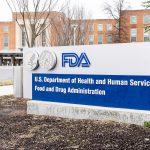
A federal judge has ordered the U.S. Centers for Disease Control and Prevention (CDC) and Food and Drug Administration (FDA) to restore access to public health websites that were removed or modified in response to a Trump administration executive order on gender. The order, issued Feb. 11 by U.S. District Judge John Bates, grants a temporary restraining order requested by Doctors for America, a nonprofit group that sued the administration over the website removals. The affected sites, some of which have been online for decades, contain public health information on HIV prevention, youth health risks, fertility treatments and more. The ruling states that the two health agencies removed the sites without explanation and likely violated federal law. “By removing long relied upon medical resources without explanation, it is likely that … each agency failed to ‘examine the relevant data and articulate a satisfactory explanation for its action,’ ” Bates wrote. He ordered the CDC and FDA to restore access by the day’s end Tuesday, a process that staff members were scrambling to complete. “It was a double waste for us because we took them offline, put some of them back, edited others and now are putting it back again,” a federal health official who wanted to remain anonymous told The Washington Post. The removed sites included: The CDC’s guidelines for HIV and PrEP, a medication… read on > read on >


























-300x200.jpg)










